At the 2025 SMM (2nd) Global Renewable Metal Industry Chain Summit hosted by SMM Information & Technology Co., Ltd., Amar Singh, Secretary General of the Material Recycling Association of India, shared insights on the topic of "Global Recycled Metals Market Showdown: An In-Depth Analysis of India's Strengths and Challenges."
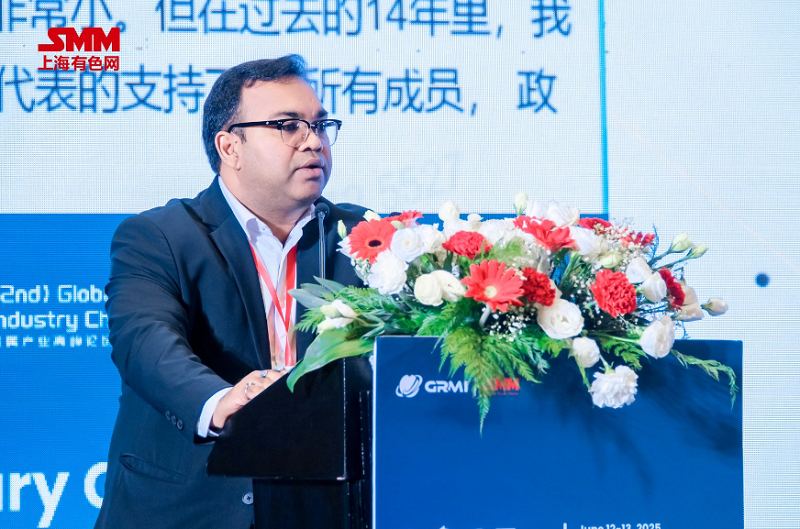
Global and Indian Market Trends
Amid global economic turmoil, India remains a bright spot, with economic growth expected to reach 6.5% in the 2025 fiscal year.
The reciprocal tariffs announced by the US government are expected to have minimal impact on the Indian economy; instead, they offer India growth opportunities as a China-plus-one manufacturing hub.
The global market size for recycled metals was $2.81 billion in 2024 and is projected to increase to $2.98 billion by 2025, growing at a compound annual growth rate (CAGR) of 6% from 2025 to 2034, reaching approximately $5.03 billion by 2034.
The market size for recycled metals in India was $11.4 billion in 2024 and is expected to reach $18.87 billion.
Significant Growth in the Recycling Industry - India Emerges as a Global Recycling Hub
Since 2019, when India surpassed Japan to become the world's second-largest steel producer and rapidly became the largest consumer of steel scrap, the recycling industry in India has seen significant growth.
According to the United Nations' Global E-waste Monitor 2020, India ranks third globally in e-waste generation, after China and the US.
►The rapid development of electric vehicles (EVs) has driven progress in the lithium-ion battery recycling industry through improved infrastructure.
►As we commit to achieving net-zero carbon emissions by 2070, recycling has transitioned from an option to a national necessity.
►Government initiatives such as the Production-Linked Incentive (PLI) Scheme, Swachh Bharat 2.0 (Clean India 2.0), the extended producer responsibility system framework, the LIFE Mission, waste management regulations, and the new Green Credit Programme are profoundly transforming India's recycling industry.
►Large enterprises are entering the metal and precious metal recycling sector, making the industry more organized and employment-rich.
►India's thriving innovation ecosystem has positioned it as the world's third-largest startup hub, attracting sustained private investment in the green and circular economy.
India's energy transition is accelerating, with 42% of its installed capacity now coming from renewable energy, supporting global sustainable development goals.
India's Recycling Journey: The Road Ahead
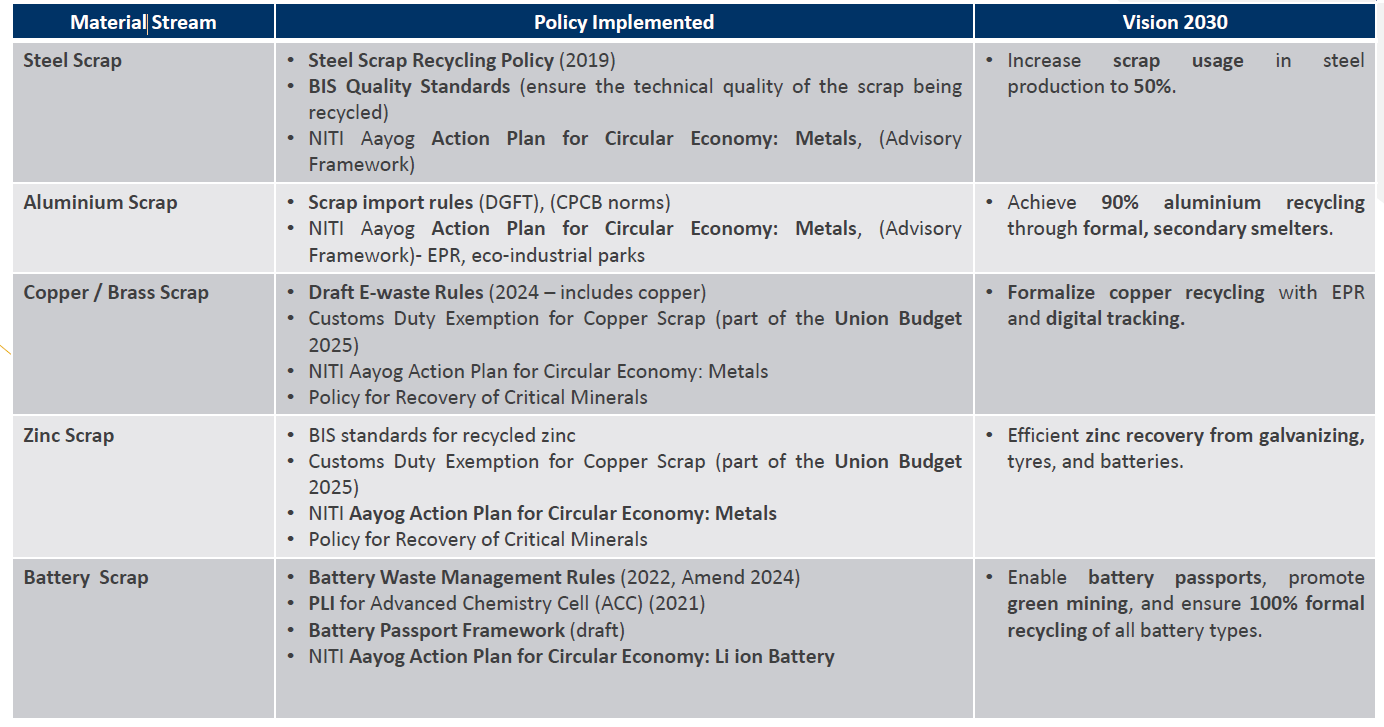
India's Metal Demand Forecast:
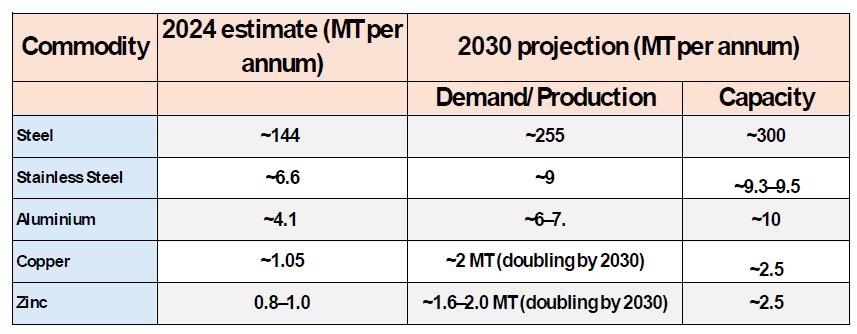
The main reasons for the demand growth are as follows:
1. The transportation and power sectors will experience significant growth in demand for these metals in the coming years.
2. Implementing policy measures such as vehicle scrapping policies will substantially increase the demand for scrap.
3. The promotion and widespread adoption of electric vehicles (EVs) are key drivers for the growth in copper demand.
Global Future: Key Challenges and Pathways Forward
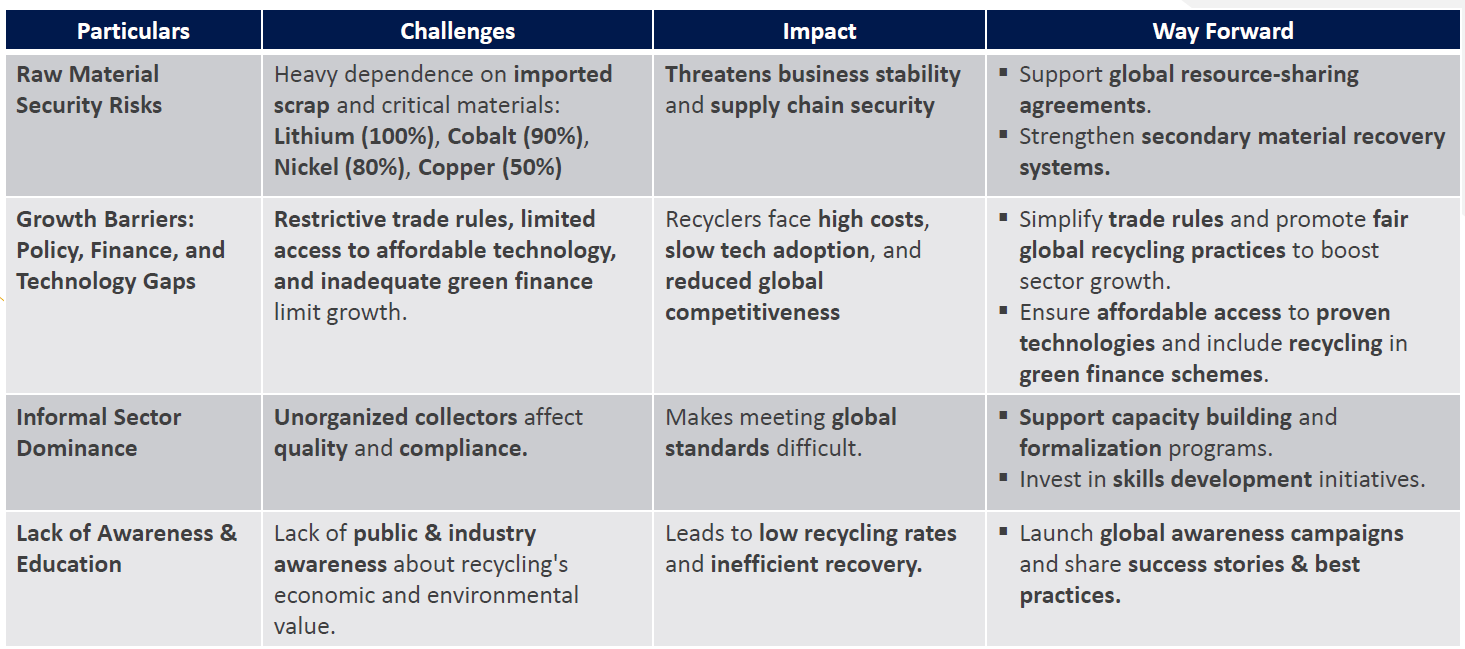
Current Situation: Recycling of Scrap EVs in India
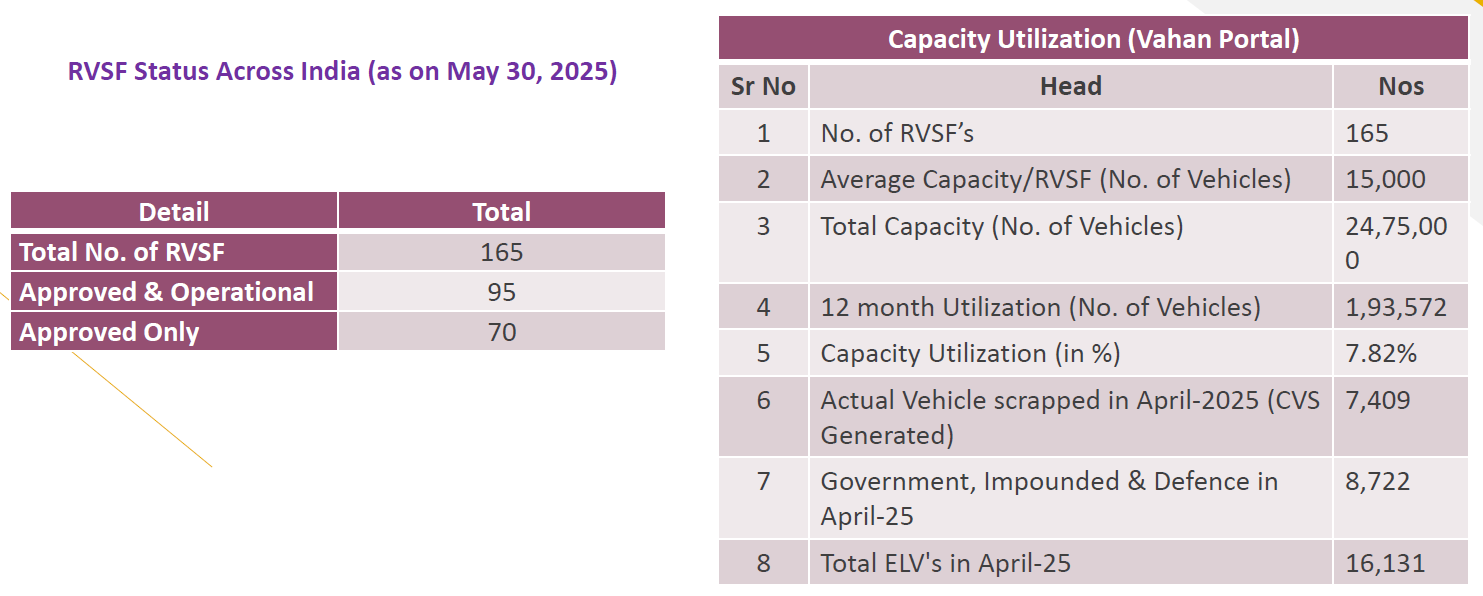
MRAI's (Material Recycling Association of India) Contributions to the Ecosystem:
1. Collating national data and grassroots information to support policy formulation in various recycling sectors.
2. Providing industry feedback to ministries such as the Ministry of Mines, Ministry of Electronics and Information Technology, Ministry of Environment, Forest and Climate Change, Ministry of Commerce and Industry, Ministry of Housing and Urban Affairs, Department for Promotion of Industry and Internal Trade, NITI Aayog (National Institution for Transforming India), and the Central Consumer Protection Authority.
3. Representing the interests of Indian recyclers in national forums, expert panels, and government consultations.
4. Advocating for policy changes through white papers and stakeholder outreach.
5. Supporting the standardization efforts of the Bureau of Indian Standards and the Central Pollution Control Board, clarifying Extended Producer Responsibility (EPR), and establishing compliance traceability systems.
6. Organizing capacity-building platforms such as the India Metal Recycling Congress and the India Battery Seminar to enhance the skills and awareness of industry practitioners.
7. Connecting Indian recyclers and MSMEs (Micro, Small, and Medium Enterprises) with government initiatives, investments, and best practices.
MRAI not only supports the development of recycling policies but also helps shape India's leadership in the global circular economy.
》Click to view the special report on the 2025 SMM (2nd) Global Recycled Metal Industry Summit Forum



